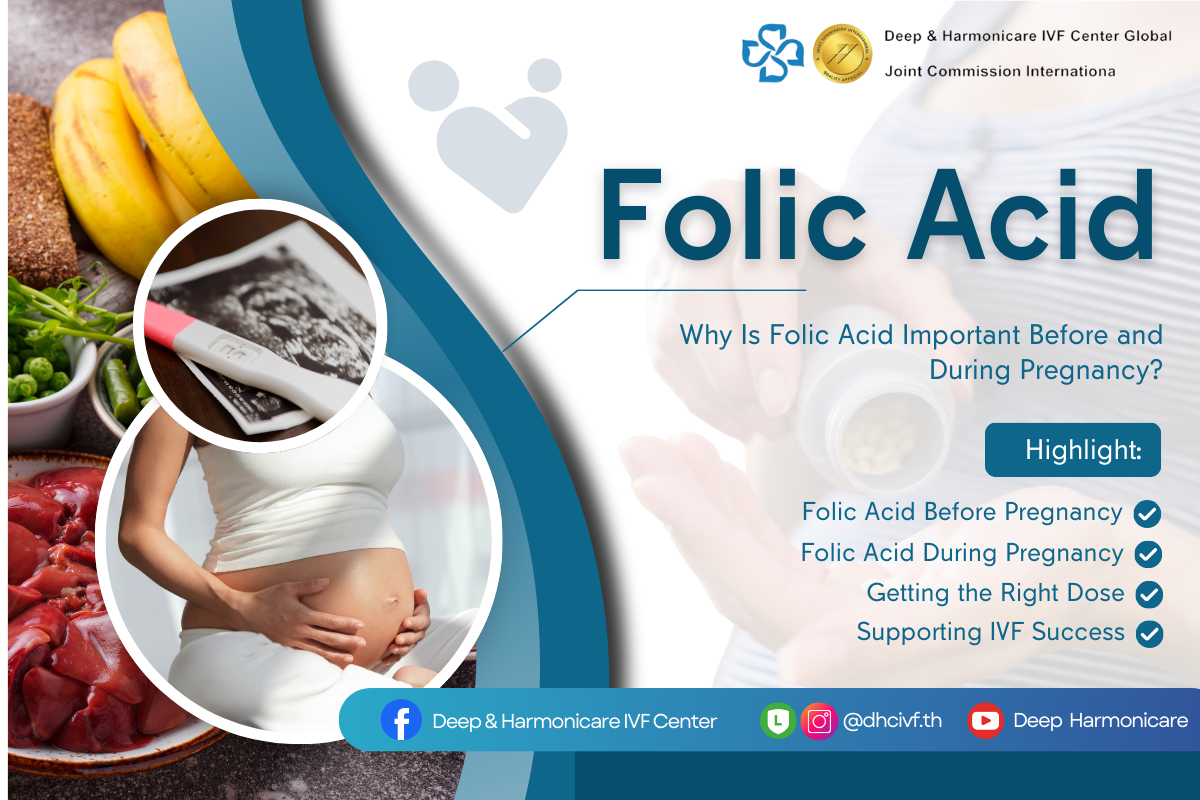Why Is Folic Acid Important Before and During Pregnancy?
For women who are trying to conceive, especially through IVF, looking after your prenatal health is very important. Folic acid is a powerful version of vitamin B9 and is essential for a healthy pregnancy and the well-being of your baby. For women who are thinking about IVF treatment, understanding the importance of folic acid before and during pregnancy is essential to know.
Folic Acid Before Pregnancy
There are no 2 ways about it, folic acid is vital for DNA synthesis, cell division and red blood cell production, all of which are essential during early pregnancy. The most important job of folic acid however, is the prevention of neural tube defects (NTDs). Conditions like spina bifida and anencephaly can arise very early in the pregnancy, even before you know your expecting. Research has shown the effectiveness of folic acid in reducing these defects by up to 70%.
For women carrying out IVF treatment, folic acid can offer further benefits, such as improved egg quality, promotion of embryo development and even an increase in implantation success rates (more detailed info can be found here).
Folic Acid During Pregnancy
Because of the importance of folic acid, it should also be taken during pregnancy itself. While you’re pregnant, especially in the first trimester, folic acid continue to prove its worth by contributing to the proper formation of a baby’s organs and systems. As well as protecting against NTDs, continued supplementation of folic acid may lower the risks of congenital conditions like heart defects and cleft lip, which was identified in population-centred research studies here.
For the women who are pregnant, folic acid can help support their maternal health by reducing the risk of anaemia, which is common due to the increased blood supply needed during pregnancy (read more in this study)
Getting the Right Dose
Fertility professionals recommend taking 400-800 micrograms of folic each day, starting at least 1 month before trying to conceive and continuing through the 1st trimester of pregnancy. You may be told to take a higher dose if you are classified as “at risk” or undergoing IVF treatment. Its very important to consult with a healthcare provider to determine the right amount for your needs. You can also boost your intake more naturally through a diet that is rich in leafy greens, oranges, legumes and fortified cereal too.
Supporting IVF Success
Folic acid is one of the most important supplements for pregnant women to take as it plays a key part in having a healthy pregnancy and baby. If you are going to undergo IVF treatment, then adding folic acid into your prenatal plan can set you on the right path to a successful conception.
If you’re having trouble with your fertility and thinking about IVF treatment, our team at
DEEP & HARMONICARE IVF CENTER are ready to give you our full support. Contact us today for personalised help on prenatal support and planning your IVF journey.





